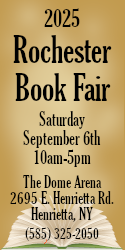Together We Thrive - Divided Not So Much
I think Voltaire was right. If people weren't able to lose themselves in their gardens or books, the world would surely go mad. And some days I think it already has. The last few years have not been happy ones for the republic for many reasons, not the least of which seems to be the officially-encouraged policy of divisiveness and inter-group hostility, carried out by a partnership of well-financed private advocacy groups and one of our major political parties. At the lowest level, morally bankrupt politicians will beat the drums for war when the tide of public opinion turns, and some voters will support them if they're told the nation is under military threat. In scenarios where a dangerous situation is caused or exacerbated by the elected leaders themselves, it might be called war in the national interest.
The “military/industrial complex” is much larger than it was in Eisenhower's time and I suspect there will never be a true accounting of the many hundreds of billions of dollars spent supplying arms to warring peoples in various parts of the world – most recently in Ukraine and Israel. Also, well-placed economic and political elites stand to make a lot of money in the nasty but lucrative side hustle of influence peddling, but when these actions and feckless policies lead to armed conflict, some of the bravest of the “elites” will express the willingness to fight, if necessary, to the last combatant – usually someone else's son or daughter and preferably from a working class background.
In the past, the Republican party was called the party of war – probably because captains of industry tended to be Republican, while most of those who served in the line of fire were working class or rural folks. That was the perception during the Vietnam War and John Fogerty even wrote a song (“Fortunate Son”) about it.
In the last few years however, there's been a significant paradigm shift. Nowadays the Democrats, the emerging party of wealth and privilege, have seen their voter base shift to the suburbs and while they may give a lot of outspoken moral support for greater American military involvement in various parts of the world, they've not known for providing many young recruits for the military. Signs on well-manicured suburban lawns may proclaim that the owners stand with Ukraine, but I suspect many of them would prefer that others do the actual standing in their stead. You may have noticed recent reporting about the ongoing decline in the number of young recruits, especially from rural and working class areas of the country, who are willing to volunteer for military service.
And while many of our politicians and bureaucrats at the highest level continue to express their willingness to commit the nation to resolving essentially fratricidal conflict in other parts of the world, at the same time important segments of the administrative state promote domestic policies which have the very real effect of promoting divisiveness and fratricidal strife at home.
Of all wars, civil war can be the most brutal and for the life of me I don't know why professional separatists, whether official or NGO, would want to continue creating and exacerbating domestic conditions that could lead to another one. My great grandfather and his brother survived the last one and we must all hope it never happens again.
From the unofficial record, I offer two short excerpts from the writings of Daniel Holt, a surgeon serving with the 121st New York Volunteers during the American Civil War. His diary and letters to his wife were collected and later presented to the Herkimer County Historical Society where they were preserved until published in book form in 1994. Writing from a field of battle near the Spotsylvania Court House (VA) on May 13, 1864, he says, in part...
"After eight days of the hardest fighting the world ever witnessed... No tongue can describe the horrors of the scene around me. Dead and dying men by scores and hundreds lie piled upon each other in promiscuous disorder... We have no regiment...it is so scattered that hardly a dozen can be got together...We have taken thousands of prisoners and killed an army; still they fight hard as ever. Huckans is well and with me. Captain Fish is killed and many, many others! Now my dear wife, good-bye, We shall be into it again in a few minutes...Do not worry for me. He who heareth the ravens when they cry will hear my prayer..."
(and in another letter ) ... "The dead lie three or four deep in many places, mixed up with wounded who cannot extricate themselves from their former comrades. Some lying between the lines are so completely riddled that it is impossible to raise them. A hole has to be dug side of them and they rolled into it for burial. They were a complete jelly! Hundreds of balls had passed through them..."
(and in yet another letter dated June 8, 1864) “...I am tired to death lying here drinking Chickahominy swamp water in which a thousand dead horses and men are macerating. Truly the decoction is excellent. It is drink this water, eat half cooked fresh beef before it is half dead, run to sink every fifteen minutes, and sleep with stenches under your nose sufficient to cause a turkey buzzard or carrion crow to contract typhoid fever, then up and fight for three or four hours and keep doing it until you get used to it..." (1)
And part way through the civil war, the Joint Committe on the Conduct of the War published a three volume report in 1863. From Congressional testimony recorded after the first battle of Bull Run (Manassas) on April 7, 1862, Frederick Scholes is sworn in and testifies, in part, as follows:
“Question. What do you know in relation to the burial of our dead at Bull Run...? (and) Did he say what soldiers they were who had treated the bodies of our dead in this way?
Answer. He condemned principally the New Orleans Tigers, of General Wheat's division; the Louisiana Tigers, I believe they were called... He said most of them had deserted their cause and were on our side now... On Sunday morning (yesterday) I collected a party of men and went to the trench where I supposed my brother may have been buried, and dug down to the bodies. We found them covered by some eighteen inches to two feet of earth, just tumbled in any way, some on their sides and some on their backs. I found one body entirely naked. Upon digging at one end of the trench we found, not more than two inches below the surface, the thigh-bone of a man that had evidentally been dug up after burial... at the other end of the trench... we found the detached shin-bone of a man... from the appearance of it, pieces had been sawed off, out of which to make finger-rings. As soon as the negroes saw it they said that the rebels had had rings made of the bones of our dead (and) had them for sale in their camps.” (2)
These few excerpts from volume 3 of the more than 1500 pages of congressional testimony describe something of the reality of the first two years of our last civil war – a bit different from the more sanitized versions that eventually find their way into high school textbooks. As the old song goes – “And when will they ever learn?” The apostles of divisiveness and those who stand to profit hope they never do.
*
(1) Holt, (M.D.), Daniel M. A Surgeon's Civil War, The Letters and Diary of Daniel M. Holt, M.D. Edited by James M. Greiner, Janet L. Coryell, & James R. Smither. Kent & London, The Kent State University Press, (1994).
(2) 37th Congress, 3rd Session. Rep. Com. No. 108 (Report of the Joint Committee on the Conduct of the War. Part III) Washington, Government Printing Office, 1863.


























